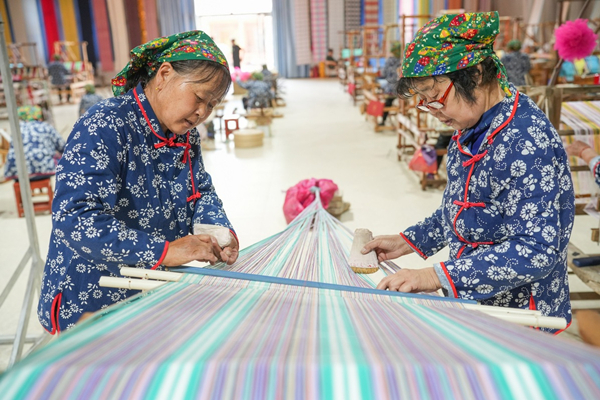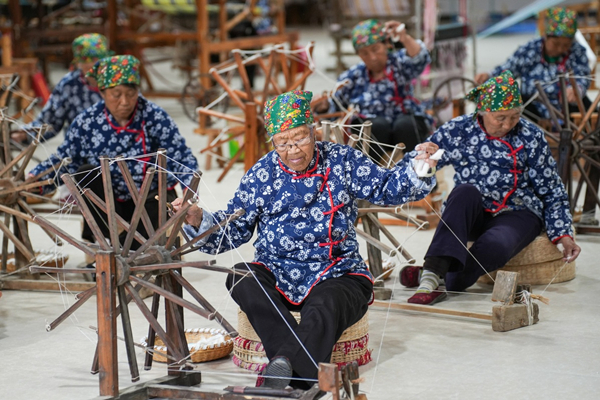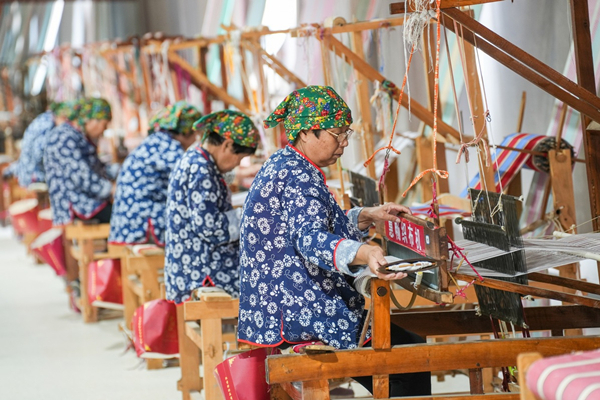Homespun cloth anchors local industry in Shanxi
Updated: 2023-06-15

Women in Dongkaizhang village of Yongji, Shanxi province, weave an ancient cloth – Huichang homespun, also known as tubu. [Photo by Wu Junjie for chinadaily.com.cn]
Sweltering in high temperatures, a group of women in Dongkaizhang village of Yongji, Shanxi province, stick dutifully to their task of weaving an ancient cloth – Huichang homespun, or tubu.
A high-quality cotton production base, the city has a long history – more than 1,000 years – making and using this fabric. In 2021, Huichang homespun skills were listed as a national-level intangible cultural heritage.
"Almost every household in Dongkaizhang has a loom, and the elderly can weave the homespun cloth," said village secretary Yu Yanping, who is also a national inheritor of the craft. "There are many local farmers planting cotton, bringing prominent advantages to the development of the traditional craft."

Women in Dongkaizhang village of Yongji, Shanxi province, weave an ancient cloth – Huichang homespun, also known as tubu. [Photo by Wu Junjie for chinadaily.com.cn]
In 2005, to increase villagers' income, Yu led some local women to investigate different industries across the country. They finally decided to develop a textile industry in the village.
Then Yu invited some experienced weavers to pass on their techniques to the women of the village, and people began to purchase looms, spinning machines and other equipment.
In 2006, a cooperative focusing on the traditional textile industry was founded, attracting around 60 women of the village.
"The skill of Huichang homespun is quite complex. It requires 72 processes to get a finished product," Yu said. "These homemade fabric products are very popular in the market because of their bright colors, exquisite patterns and comfortable feel."

Women in Dongkaizhang village of Yongji, Shanxi province, weave an ancient cloth – Huichang homespun, also known as tubu. [Photo by Wu Junjie for chinadaily.com.cn]
To innovate and better inherit the development of handmade homespun fabrics, the village established a cultural and creative company in 2012. So far, more than 100 kinds of products have been developed, including bedding, clothing and cloth shoes, which were greatly welcomed in both domestic and overseas markets.
The annual output value of the industry reached more than 20 million yuan ($2.8 million) and more than 800 people had jobs.
The village also built a cultural tourism industrial park based on its unique textiles. It integrates sightseeing, hands-on experience, leisure, research, catering and entertainment.



